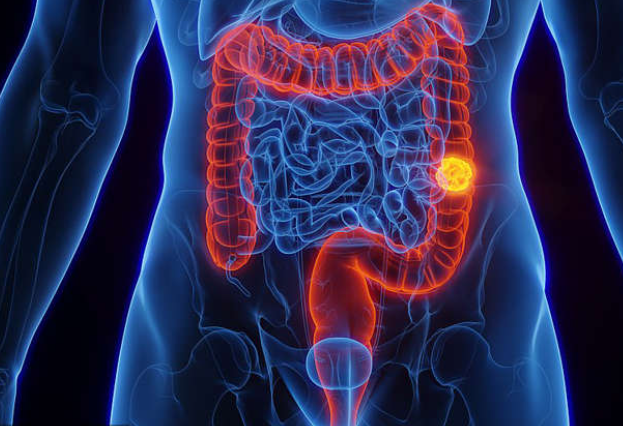
It’s a new year, and many of us have started with grand plans about improving our health. That’s great, and all power to you in your endeavours. That said, we like to take a measured, long-term approach to health here at the Blue Ribbon Foundation, and focus on making incremental changes. This month, we want to look at how you could steadily reduce the amount of sugar in your diet, a major factor in preventing obesity.
There’s been lots of (predictable) debate in the press recently following two big announcements on public health. Firstly, Dame Sally Philips, England’s Chief Medical Officer announced a new set of alcohol guidelines at the start of January. For the first time, men are recommended to keep their weekly alcohol consumption at the same level as women – no more than 14 units a week. On top of that, Dr Philips emphasised that there is no safe level of alcohol to drink. Let’s be honest with ourselves – we kind of knew this already. While some researchers has speculated that an occasional glass of red wine may have some health benefits, fundamentally alcohol is a poison, so it is usually to be avoided!
Secondly, there has been lots of press about the amount of sugar we eat in our diet. This has included Prime Minister David Cameron saying in mid-January that he would contemplate a sugar tax (specially on sugary drinks) for the first time, after ruling this out last year. Whether or not this comes to pass is doubtful. But the public debate has highlighted the harmful levels of sugar many…no, most people eat, and the effects this can have, contributing to men’s risk of obesity, high blood pressure and diabetes – not forgetting tooth decay as well!
Here at the Blue Ribbon Foundation, we’re not going to get into the debates about sugar tax or alcohol policy. But fundamentally, it is clear that many of us live unhealthy lives, whether that’s through drinking too much, eating a poor diet, smoking or not exercising regularly. This month, let’s look at how we can take positive steps to reduce the amount of sugar we eat.
1. Know what’s healthy

Without knowing how much sugar is too much, it’s hard for men to make sure they are not overdosing on the sweet stuff. The recommended daily allowance for an adult is about 30g grams – about 7 sugarcubes. So if you had 4 teas with 2 sugars each in a day, you’re above the limit for that day, irrespective of what else you might consume.
2. Know what you’re eating
Most food packaging now has detailed labels listing their content including sugar, so it is easy to see what you are consuming if you check. There are also a range of phone apps that have access to libraries of food and their ingredients; MyPlate, MyFitnessPal, and the NHS’s Sugar Smart are all good examples. Taking a look at the sugar content can help you avoid accidentally eating more sugar than you need.
3. Think about why you eat
Sometimes we eat just for something to do; because it’s what we always do at that time of the day; or because the biscuits are just there! Whatever the reason, it will be something specific to you and how you live your life. In this way, your approach to cutting down on sugar is the same as how you would approach cutting down on alcohol, smoking, or other habits. We usually have an emotional attachment to the food beyond the physical. For example, underneath the surface, eating something sweet might involve feelings like:
- eating this makes me happy
- eating this reminds me of my childhood
- eating this helps me relax
- eating this is a reward for my bad day
And so on. There may be nothing wrong with those attachments, but if they are contributing to you eating more sugar than is healthy, it’s important to challenge those beliefs. For instance, there are other rewards you can give yourself that aren’t sugar related; your work break can be about having space to yourself rather than feeding yourself; and so on. Sometimes it’s also about the environment you’re in, and removing foods that will tempt you may help. For instance, your author realised he was going through a big bag of chocolates rapidly in a night while he was watching TV. I realised that I wasn’t really thinking about the chocolates after the first few, nor really enjoying them – it was just something to occupy me while I was watching TV. If I had focused on the actual taste, I would have realised I was full (and feeling over-sugared!) long before I stopped, and put the bag away earlier.
4. Replace sugar slowly

Eating less, and well, is the key way to lose weight if that’s your goal
Going cold turkey on sugar can be difficult, particularly if you’re previously been having a lot of it. You run the risk of giving up and/or binging if you try to stop too quickly. Instead, look at reducing your sugar portion size rather than getting rid of it altogether instantly. You can find reduced sugar foods or drinks to help wean you off slowly. For example, instead of having toast with jam for breakfast, a banana will give you a sugar rush but with significantly less sugar.
Sweetened gum or diet soda with artificial sweeteners can help in this regard, but these should be seen as an interim product to help you move past your reliance on sugar. As the jury is still out on the health impacts of many artificial sweeteners, it’s probably not a good idea to have too much of these either!
5. Get more advice and support as needed
There are many organisations out there that can help you with sugar cravings and a better diet. For instance, NHS’
Change4Life and the
British Heart Foundation have a range of resources and information that can help you think about what you consume, and make changes if needed. Fundamentally, we just need to remember that while there is nothing wrong with a sugary treat, it should remain just that – a treat.
 It’s a new year, and many of us have started with grand plans about improving our health. That’s great, and all power to you in your endeavours. That said, we like to take a measured, long-term approach to health here at the Blue Ribbon Foundation, and focus on making incremental changes. This month, we want to look at how you could steadily reduce the amount of sugar in your diet, a major factor in preventing obesity.
There’s been lots of (predictable) debate in the press recently following two big announcements on public health. Firstly, Dame Sally Philips, England’s Chief Medical Officer announced a new set of alcohol guidelines at the start of January. For the first time, men are recommended to keep their weekly alcohol consumption at the same level as women – no more than 14 units a week. On top of that, Dr Philips emphasised that there is no safe level of alcohol to drink. Let’s be honest with ourselves – we kind of knew this already. While some researchers has speculated that an occasional glass of red wine may have some health benefits, fundamentally alcohol is a poison, so it is usually to be avoided!
Secondly, there has been lots of press about the amount of sugar we eat in our diet. This has included Prime Minister David Cameron saying in mid-January that he would contemplate a sugar tax (specially on sugary drinks) for the first time, after ruling this out last year. Whether or not this comes to pass is doubtful. But the public debate has highlighted the harmful levels of sugar many…no, most people eat, and the effects this can have, contributing to men’s risk of obesity, high blood pressure and diabetes – not forgetting tooth decay as well!
Here at the Blue Ribbon Foundation, we’re not going to get into the debates about sugar tax or alcohol policy. But fundamentally, it is clear that many of us live unhealthy lives, whether that’s through drinking too much, eating a poor diet, smoking or not exercising regularly. This month, let’s look at how we can take positive steps to reduce the amount of sugar we eat.
1. Know what’s healthy
It’s a new year, and many of us have started with grand plans about improving our health. That’s great, and all power to you in your endeavours. That said, we like to take a measured, long-term approach to health here at the Blue Ribbon Foundation, and focus on making incremental changes. This month, we want to look at how you could steadily reduce the amount of sugar in your diet, a major factor in preventing obesity.
There’s been lots of (predictable) debate in the press recently following two big announcements on public health. Firstly, Dame Sally Philips, England’s Chief Medical Officer announced a new set of alcohol guidelines at the start of January. For the first time, men are recommended to keep their weekly alcohol consumption at the same level as women – no more than 14 units a week. On top of that, Dr Philips emphasised that there is no safe level of alcohol to drink. Let’s be honest with ourselves – we kind of knew this already. While some researchers has speculated that an occasional glass of red wine may have some health benefits, fundamentally alcohol is a poison, so it is usually to be avoided!
Secondly, there has been lots of press about the amount of sugar we eat in our diet. This has included Prime Minister David Cameron saying in mid-January that he would contemplate a sugar tax (specially on sugary drinks) for the first time, after ruling this out last year. Whether or not this comes to pass is doubtful. But the public debate has highlighted the harmful levels of sugar many…no, most people eat, and the effects this can have, contributing to men’s risk of obesity, high blood pressure and diabetes – not forgetting tooth decay as well!
Here at the Blue Ribbon Foundation, we’re not going to get into the debates about sugar tax or alcohol policy. But fundamentally, it is clear that many of us live unhealthy lives, whether that’s through drinking too much, eating a poor diet, smoking or not exercising regularly. This month, let’s look at how we can take positive steps to reduce the amount of sugar we eat.
1. Know what’s healthy
 Without knowing how much sugar is too much, it’s hard for men to make sure they are not overdosing on the sweet stuff. The recommended daily allowance for an adult is about 30g grams – about 7 sugarcubes. So if you had 4 teas with 2 sugars each in a day, you’re above the limit for that day, irrespective of what else you might consume.
2. Know what you’re eating
Most food packaging now has detailed labels listing their content including sugar, so it is easy to see what you are consuming if you check. There are also a range of phone apps that have access to libraries of food and their ingredients; MyPlate, MyFitnessPal, and the NHS’s Sugar Smart are all good examples. Taking a look at the sugar content can help you avoid accidentally eating more sugar than you need.
3. Think about why you eat
Sometimes we eat just for something to do; because it’s what we always do at that time of the day; or because the biscuits are just there! Whatever the reason, it will be something specific to you and how you live your life. In this way, your approach to cutting down on sugar is the same as how you would approach cutting down on alcohol, smoking, or other habits. We usually have an emotional attachment to the food beyond the physical. For example, underneath the surface, eating something sweet might involve feelings like:
Without knowing how much sugar is too much, it’s hard for men to make sure they are not overdosing on the sweet stuff. The recommended daily allowance for an adult is about 30g grams – about 7 sugarcubes. So if you had 4 teas with 2 sugars each in a day, you’re above the limit for that day, irrespective of what else you might consume.
2. Know what you’re eating
Most food packaging now has detailed labels listing their content including sugar, so it is easy to see what you are consuming if you check. There are also a range of phone apps that have access to libraries of food and their ingredients; MyPlate, MyFitnessPal, and the NHS’s Sugar Smart are all good examples. Taking a look at the sugar content can help you avoid accidentally eating more sugar than you need.
3. Think about why you eat
Sometimes we eat just for something to do; because it’s what we always do at that time of the day; or because the biscuits are just there! Whatever the reason, it will be something specific to you and how you live your life. In this way, your approach to cutting down on sugar is the same as how you would approach cutting down on alcohol, smoking, or other habits. We usually have an emotional attachment to the food beyond the physical. For example, underneath the surface, eating something sweet might involve feelings like:
 Eating less, and well, is the key way to lose weight if that’s your goal
Going cold turkey on sugar can be difficult, particularly if you’re previously been having a lot of it. You run the risk of giving up and/or binging if you try to stop too quickly. Instead, look at reducing your sugar portion size rather than getting rid of it altogether instantly. You can find reduced sugar foods or drinks to help wean you off slowly. For example, instead of having toast with jam for breakfast, a banana will give you a sugar rush but with significantly less sugar.
Sweetened gum or diet soda with artificial sweeteners can help in this regard, but these should be seen as an interim product to help you move past your reliance on sugar. As the jury is still out on the health impacts of many artificial sweeteners, it’s probably not a good idea to have too much of these either!
5. Get more advice and support as needed
There are many organisations out there that can help you with sugar cravings and a better diet. For instance, NHS’ Change4Life and the British Heart Foundation have a range of resources and information that can help you think about what you consume, and make changes if needed. Fundamentally, we just need to remember that while there is nothing wrong with a sugary treat, it should remain just that – a treat.
Eating less, and well, is the key way to lose weight if that’s your goal
Going cold turkey on sugar can be difficult, particularly if you’re previously been having a lot of it. You run the risk of giving up and/or binging if you try to stop too quickly. Instead, look at reducing your sugar portion size rather than getting rid of it altogether instantly. You can find reduced sugar foods or drinks to help wean you off slowly. For example, instead of having toast with jam for breakfast, a banana will give you a sugar rush but with significantly less sugar.
Sweetened gum or diet soda with artificial sweeteners can help in this regard, but these should be seen as an interim product to help you move past your reliance on sugar. As the jury is still out on the health impacts of many artificial sweeteners, it’s probably not a good idea to have too much of these either!
5. Get more advice and support as needed
There are many organisations out there that can help you with sugar cravings and a better diet. For instance, NHS’ Change4Life and the British Heart Foundation have a range of resources and information that can help you think about what you consume, and make changes if needed. Fundamentally, we just need to remember that while there is nothing wrong with a sugary treat, it should remain just that – a treat.





